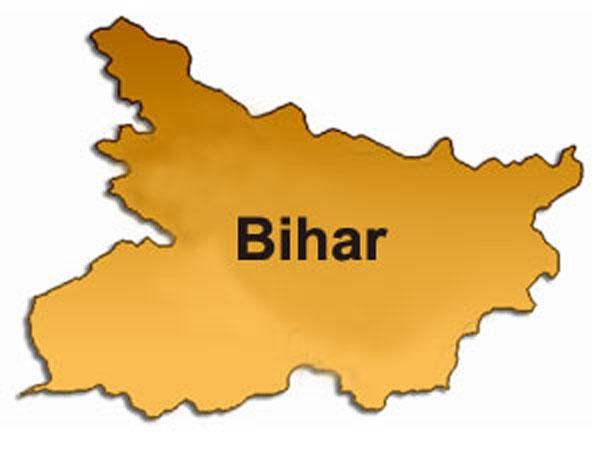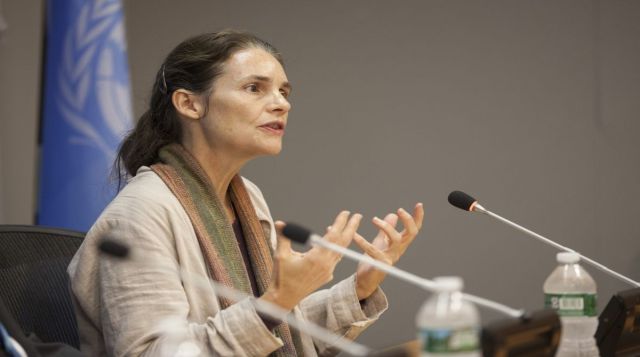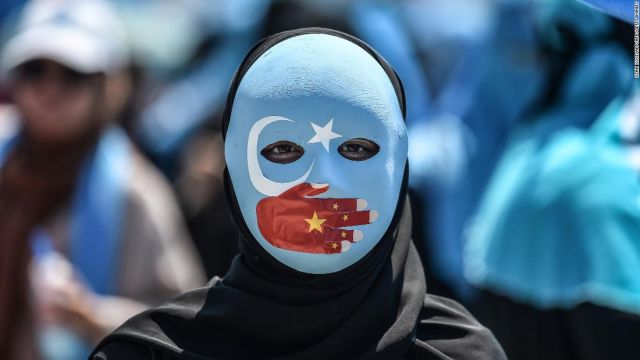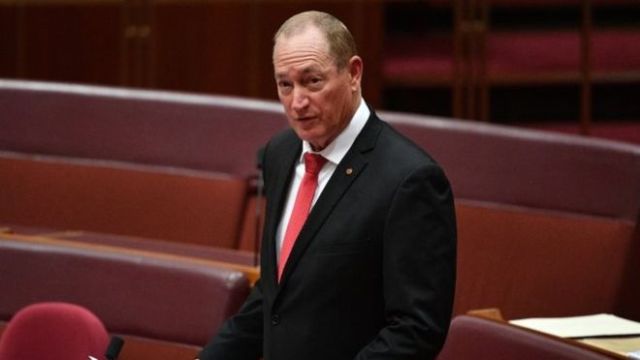
by admin | May 25, 2021 | News

Press conference of Grand Alliance, ‘Resolution of change’ continues.(File Photo)
NEW DELHI: It was a strategic failure on the part of the Congress to have remained assured of the support from the Muslim community during the Bihar Assembly elections. As made evident by the results, the Congress’ lack of work in the ground made it lose heavily, especially in the Seemanchal region, say party leaders.
The Congress Minority leaders were ignored in campaigning and micro managing the elections in the Muslim dominated areas, a Congress leader said. In the whole state, it was presumed that the Muslims would vote for the Grand Alliance, but they were divided in Seemanchal where the AIMIM won five seats and led to the loss of seats for the alliance.
In Kishanganj, the Congress candidate could manage the win by a close margin of around 1,000 votes as the AIMIM got more than 41,000 votes.
While former Union Minister Shakil Ahmed Khan maintained, “In the last minutes, the administration gave the certificate to the NDA candidates and winners became losers”.
He cited the case of two constituencies where the candidates were defeated after being declared winner.
But another leader Shakiluzaman Ansari said he had flagged the issue of the Muslim voters in meetings.
He said that he had categorically conveyed that the Muslims in their dominated areas should not be taken for granted in view of the AIMIM being in the fray.
“I was ignored and only Imran Pratapgarhi was campaigning. But to micro manage the elections, senior leaders of the state had to do a lot in the areas,” said Ansari.
Neither the skills of former Union Minister Shakil Ahmed were used nor was Ansari given the importance. It was only Tariq Anwar and Imran Pratapgarhi, who campaigned and the result of all is that the Grand Alliance missed the bus with only 12 seats.
The opposition Mahagathbandhan ended up with 110 seats, with the Rashtriya Janata Dal winning 75 seats, the Congress 19 and the Communist Party of India-Marxist-Leninist (Liberation) winning 12. The Communist Party of India and the Communist Party of India-Marxist won two seats each.

by admin | May 25, 2021 | Muslim World, World

The Arabic script on the signboard of a halal restaurant is seen covered, at Niujie area in Beijing, China, July 19, 2019. (REUTERS)
BEIJING: Authorities in the Chinese capital have ordered halal restaurants and food stalls to remove Arabic script and symbols associated with Islam from their signs, part of an expanding national effort to “Sinicize” its Muslim population.
Employees at 11 restaurants and shops in Beijing selling halal products and visited by Reuters in recent days said officials had told them to remove images associated with Islam, such as the crescent moon and the word “halal” written in Arabic, from signs.
Government workers from various offices told one manager of a Beijing noodle shop to cover up the “halal” in Arabic on his shop’s sign, and then watched him do it.
“They said this is foreign culture and you should use more Chinese culture,” said the manager, who, like all restaurant owners and employees who spoke to Reuters, declined to give his name due to the sensitivity of the issue.
The campaign against Arabic script and Islamic images marks a new phase of a drive that has gained momentum since 2016, aimed at ensuring religions conform with mainstream Chinese culture.
The campaign has included the removal of Middle Eastern-style domes on many mosques around the country in favour of Chinese-style pagodas.
China, home to 20 million Muslims, officially guarantees freedom of religion, but the government has campaigned to bring the faithful into line with Communist Party ideology.
It’s not just Muslims who have come under scrutiny. Authorities have shut down many underground Christian churches, and torn down crosses of some churches deemed illegal by the government.
But Muslims have come in for particular attention since a riot in 2009 between mostly Muslim Uighur people and majority Han Chinese in the far western region of Xinjiang, home to the Uighur minority.
Spasms of ethnic violence followed, and some Uighurs, chafing at government controls, carried out knife and crude bomb attacks in public areas and against the police and other authorities.
In response, China launched what it described as a crackdown on terrorism in Xinjiang.

Now, it is facing intense criticism from Western nations and rights groups over its policies, in particular mass detentions and surveillance of Uighurs and other Muslims there.
The government says its actions in Xinjiang are necessary to stamp out religious extremism. Officials have warned about creeping Islamisation, and have extended tighter controls over other Muslim minorities.

by admin | May 25, 2021 | News, Politics

Sabina Alkire, Director of Oxford Poverty & Human Development Initiative
By Arul Louis,
United Nations : While India has taken tremendous strides in combating poverty in the past decade, Muslims, members of the Scheduled Tribes (ST) and Dalits saw the most progress in in reducing the impact of poverty, according to data compiled in a UN project.
The “very positive trend” during the decade between 2005-06 and 2015-16 in India is that “the poorest are catching up”, Sabina Alkire, Director of the Oxford Poverty and Human Development Initiative (OPHDI), said on Thursday at the presentation of the 2018 Multidimensional Poverty Index (MPI) here.
The MPI prepared by the UN Development Programme (UNDP) and the OPHDI, takes into account various indicators of development rather than just income and aligns them to the UN Sustainable Development Goals, while serving as a measure of the intensity of poverty felt by different groups.
While ST members were still the poorest group, they have seen the fastest reduction in MPI, as have the Dalits, Alkire said.
Explaining it, Diego Zavaleta Reyles from OPHDI told IANS that the average number of deprivations or “the intensity of their poverty” measured by the MPI fell for these groups even though the proportion of poor people in these categories was relatively the same or unchanged.
Between 2006 and 2016, the MPI of the STs came down from 0.447 to 0.229 even though the percentage had fallen only from 79.8 to 50 during the decade, according to OPHDI data.
During the same period, the MPI of Dalits fell from 0.338 to 0.145 while the percentage of poor came down from 65 to 32.9.
“If we look at the religious groups, the Muslims are the poorest and they again had the fastest reduction in MPI,” Alkire said.
While MPI for Muslims was 0.331 in 2006, it fell to 0.144 in 2016, and the percentage of the poor in the community came down from 60.3 per cent to 31.1 per cent.
Nationally, 54.7 per cent of the people in all groups taken together were poor in 2006, but only 27.5 per cent in 2016, and the MPI came down from 0.279 to 0.121, the data show.
In terms of numbers, 271 million people had moved out of poverty during the decade, with the number of poor people coming down 635 million in 2005-06 to 364 million according to the MPI standards.
But “we are seeing a shift of global proportions occurring in India over a ten-year period and that is really encouraging”, Alkire said.
India is the only country for which changes of this magnitude are taking place at this time, she added.
Bihar remains the poorest state, but along with other high-poverty states – Jharkhand, Madhya Pradesh, Uttar Pradesh and Chhatisgarh – had the fastest reduction in multi-dimensional poverty, she said.
In spite of the progress, these states still remain the poorest.
Among age groups, children, who are still the poorest, saw the fastest reduction in MPI, she said.
Such reduction in poverty among these groups or states did had not happened in India in the earlier periods according to a previous study for the period 1998-1999 to 2005-06, she said.
UNDP Administrator Adam Steiner said that when governments start looking carefully at who the poor are and where they are, the analysis leads to programmes that help the poorest of the poor, whether by ethnicity, religion or geography, and results like those in India can be achieved.
Traditional poverty measures – often calculated by numbers of people who earn less than $1.90 a day – shed light on how little people earn but not on whether or how they experience poverty in their day-to-day lives, according to UNDP.
On the other hand, MPI takes into account health, education and living standards in areas like access to clean water, sanitation, nutrition and primary education, with those lacking in at least a third of these defined as multi-dimensionally poor.
According to the income-based measurement, only 270 million Indians are considered poor but according to the MPI standards a far larger number – 364 million — were categorised as multi-dimensionally poor in 2016.
(Arul Louis can be reached at arul.l@ians.in and followed on Twitter at @arulouis)
—IANS

by admin | May 25, 2021 | World

A demonstrator wearing a mask painted with the colors of the flag of East Turkestan and the Chinese flag attends a protest in Istanbul, Turkey in July 2018. Beijing has been accused of widespread human rights violations against Turkic Muslims in the far western region of Xinjiang. (Credit: CNN)
Beijing : A rights group on Monday accused the Chinese government of conducting a mass, systematic campaign of human rights violations against Muslims in the far western region of Xinjiang.
The new Human Rights Watch (HRW) report comes after a UN committee last month raised alarm at the “numerous reports of detention of large numbers of ethnic Uyghurs and other Muslim minorities held incommunicado and often for long periods, without being charged or tried, under the pretext of countering terrorism and religious extremism”, CNN reported.
In the report, HRW documents the increasing government control over the 13 million Muslims living in Xinjiang.
It is estimated that in the area, one million are currently detained in re-education camps where they are forced to learn Mandarin and sing the praises of the Chinese Communist Party.
“The Chinese government is committing human rights abuses in Xinjiang on a scale unseen in the country in decades,” Efe news quoted said Sophie Richardson, HRW China director, as saying.
Detainees in these political re-education camps have not been charged with any crime, have no access to lawyers or contact with relatives.
HRW pointed out that they have been held under circumstances that do not constitute a crime, including having links with foreign countries, using foreign communications tools like WhatsApp – censored by the Chinese authorities – or peacefully expressing their identity and religion.
“I asked (the authorities) if I can hire a lawyer and they said, ‘No, you shouldn’t need a lawyer because you’re not convicted. There’s no need to defend you against anything. You’re in a political education camp – all you have to do is just study’,” a man who spent months in the camps told HRW.
“Nobody can move because they watch you through the video cameras, and after a while a voice came from the speakers telling you that now you can relax for a few minutes… We were watched, even in the toilet,” another detainee told the rights group.
Outside these centres, Xinjiang citizens are under mass surveillance with high-tech systems such as phone spyware, biometrics, QR codes and big data, and officials make regular visits to their homes where they stay, the report said.
Passport controls, compulsory attendance in Mandarin night schools or flag-raising ceremonies are also common, with authorities even encouraging neighbours to spy on each other and sowing division between families.
Amid the allegations of systematic abuse by numerous organisations in Xinjiang, the Chinese government insisted that people in China have complete freedom to choose their religion.
—IANS

by admin | May 25, 2021 | World

Australian Senator Fraser Anning
By Rekha Bhattacharjee,
Sydney : Australian Senator Fraser Anning on Wednesday compared Muslims with “poisonous jelly beans”, following his “racist” maiden speech in the Senate seeking immigration restrictions based on race.
Anning, from the conservative Katter’s Australian Party, advocated a return to White Australia policy and called for migration bans on Muslims in his speech in Parliament on Tuesday.
Prime Minister Malcolm Turnbull joined other politicians and community leaders in criticizing the Queensland Senator for suggesting a “final solution” (the phrase that refers to a plan hatched by Nazis to annihilate the Jews) to the immigration “problem”.
Turnbull said Anning made “a shocking insult to the memory” of those murdered in the Holocaust.
Following his controversial speech, Anning targeted Muslims once again in an interview to a Sydney talkback radio.
“Look, if you can tell me which ones are not going to cause us harm, then fine, that’d be great. But unfortunately if you have a jar of jelly beans and three of them are poisonous, you’re not going to try any of them,” he told Alan Jones of radio 2GB, while referring to Muslims.
Anning insisted that Muslims should be stopped from entering Australia. “I’m afraid that the Muslims, as a group, there’s going to be three or four or five per cent that are going to mean us harm.
“Because I can’t tell who’s who, I think the safest thing for Australians is that we don’t have any of them,” he said.
Earlier in his Parliament speech, Anning said: “The record of Muslims who have already come to this country in rates of crime, welfare dependency and terrorism is the worst of any migrants and vastly exceeds any other immigrant groups.
“We have black African Muslim gangs terrorising Melbourne. We have Islamic State-sympathizing Muslims trying to go overseas to fight for it. While all Muslims are not terrorists, certainly all terrorists these days are Muslims,” he said while urging for a plebiscite to decide who enters Australia.
Several Australian parliamentarians denounced the speech as “disgraceful” and called on Anning to apologize for his choice of words.
Muslim MP Anne Aly said that the Queensland Senator deliberately used “neo-Nazi, white supremacist terminology”.
“That was a deliberate use of a heinous word that brings back so many painful memories and sets a precedent for the future of our country that we need to stand up and stop it,” said a tearful Aly in Parliament.
“I’m tired of fighting. I’m tired of having to stand up against hate, against vilification, time and time again.”
Besides Muslims, Anning also targeted international students as he asked for an “end to Australian-job-stealing 457 visas” and “force international students to return to their country of origin once they finish their education”.
He also sought the number of student visas to be cut drastically. India is the second largest source of international students after China.
(Rekha Bhattacharjee can be contacted at vijaybhatta56@gmail.com)
—IANS






